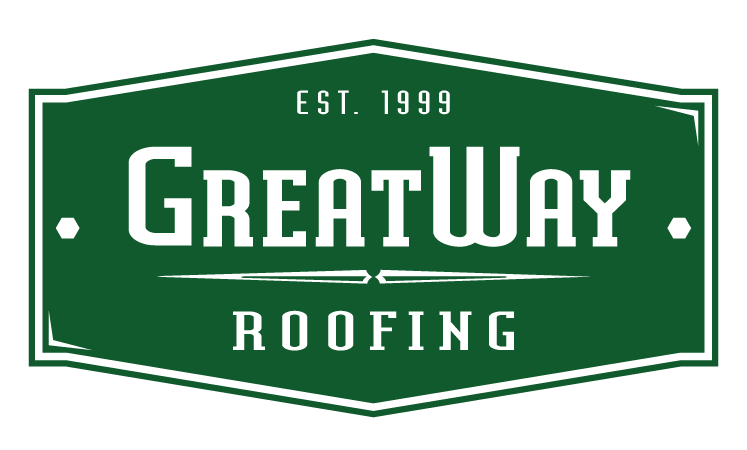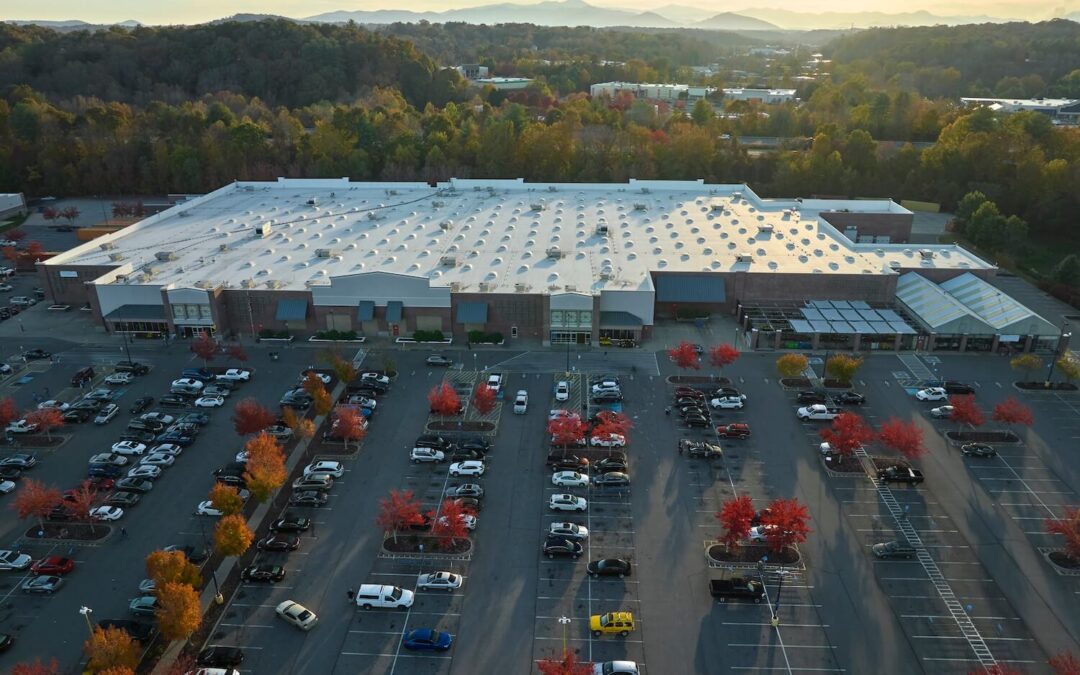Choosing the right commercial roofing company is critical for protecting your business, ensuring compliance with local regulations, and maximizing the lifespan of your roof. With so many options available, it’s essential to vet potential contractors carefully before deciding.
By asking the right questions, you can determine whether a company is reputable, experienced, and capable of delivering quality workmanship. Here are the key questions to ask before hiring a commercial roofing contractor.
1. Are You Licensed, Insured, and Bonded?
One of the most important factors is whether the roofing company is appropriately licensed, insured, and bonded.
- License: Ask if the company has a valid roofing contractor license in your state. A licensed contractor is more likely to follow building codes and safety regulations.
- Insurance: Verify that the company carries general liability insurance (to cover property damage) and workers’ compensation insurance (to protect you from liability in case of worker injuries).
- Bonding: A bonded company provides financial protection in case it fails to meet contractual obligations.
Why This Matters: Without proper licensing and insurance, you could be liable for injuries or damage during the roofing project.
2. What Experience Do You Have With Commercial Roofing?
Not all roofing companies specialize in commercial roofing. Ensure the contractor has experience working with commercial properties and understands their unique challenges.
Ask about:
- The number of years they have been in business.
- Their experience with your specific roof type (e.g., flat roofs, metal roofing, TPO, EPDM, modified bitumen).
- References or case studies from past commercial projects.
Why This Matters: Commercial roofing requires specialized knowledge, and hiring an inexperienced contractor can lead to costly mistakes.
3. Can You Provide References from Past Clients?
A trustworthy commercial roofing company should be able to provide references from previous clients who can speak to the quality of their work.
- Request a list of past commercial clients and ask if you can contact them directly.
- Ensure that the references you receive are from businesses with similar roofing needs or project scopes.
- Look for online reviews or testimonials from independent sources like Google, Yelp, or the Better Business Bureau to get a broader sense of the company’s reputation.
Why This Matters: Talking to past clients provides valuable insights into the contractor’s reliability, attention to detail, and overall customer experience. It allows you to gauge whether the company delivers on its promises and if it completes projects on time and within budget.
4. What Roofing Materials Do You Recommend and Why?
Choosing the right roofing material is crucial for your commercial roof’s long-term durability, energy efficiency, and overall performance. The right material affects the roof’s lifespan and your building’s energy consumption, aesthetic appeal, and maintenance needs. When speaking with a roofing contractor, it’s essential to understand the materials they recommend and why they suit your specific needs.
A reputable roofing company should be able to provide detailed insights into various roofing options, including the pros and cons of each. Here are some factors to consider when asking this question:
- Climate Considerations: Different roofing materials perform better in specific climates. For instance, metal roofs are ideal for areas with heavy winds or rainfall, as they are durable and shed water efficiently. On the other hand, TPO or PVC roofing is excellent for regions with intense sunlight because it offers superior UV resistance and reflects heat, helping to reduce cooling costs.
- Energy Efficiency: Roofing materials like cool roofing systems or reflective coatings can significantly lower energy bills by reflecting sunlight rather than absorbing it. A roofing contractor should be able to explain how each material’s energy efficiency can contribute to lower operating costs over time.
- Durability and Maintenance: The durability of roofing materials can vary significantly. Modified bitumen and EPDM (ethylene propylene diene monomer) are known for their resilience and require minimal maintenance, making them excellent choices for commercial properties.
- Budget Considerations: Different materials have varying price points, and the contractor should be transparent about the costs involved. The contractor should offer a range of options that fit within your budget while also considering the long-term value and durability of the materials. While cheaper materials may reduce upfront costs, higher-quality options may save you money in the long run through fewer repairs and lower energy bills.
A knowledgeable contractor should recommend materials based on their experience and provide a rationale for why specific options are more suited to your building’s needs. They should consider factors like local weather patterns, building design, and your business’s sustainability goals when advising on the best roofing materials for your commercial property.
Why This Matters: Using the right materials ensures longevity and minimizes long-term costs.
5. What Is Your Process for Roof Installation or Repair?
Understanding the contractor’s roof installation or repair process is crucial for ensuring that the job is completed efficiently and to a high standard. Ask the roofing company to explain their step-by-step approach, including:
- Preparation: How do they prepare the site before beginning work? This includes setting up safety measures, protecting your property, and removing debris or old materials.
- Roof Installation/Repair: What specific procedures do they follow during installation or repair? Ensure they outline the process of applying the roofing material, sealing the roof, and ensuring proper ventilation or drainage.
- Quality Control and Inspection: Will there be any quality checks or inspections during or after the work is completed? A reliable company will typically have a final inspection to ensure everything meets industry standards and your expectations.
- Post-Project Clean-Up: What steps will be taken to clean up the worksite once the project is completed? This includes removing any leftover materials and debris and leaving the area pristine.
Why This Matters: A well-defined process ensures that the roofing project is executed professionally, with minimal disruption to your business operations, and that potential issues are addressed quickly and efficiently.
6. Will You Provide a Detailed Written Estimate?
A trustworthy roofing company should always provide a comprehensive, written estimate outlining all project details. This estimate should include:
- A complete breakdown of costs, including material, labor, and additional charges.
- The expected timeline for project completion, with milestones if applicable.
- A payment schedule and any terms related to deposits or final payments.
- Any contingencies or potential extra costs that may arise during the project.
Why This Matters: A well-detailed estimate ensures transparency, helps you avoid hidden fees, and provides a clear understanding of what to expect. Without this, there could be confusion or disputes over the final cost.
7. How Do You Handle Safety and Compliance as a Roofing Contractor?
Safety and regulatory compliance are crucial in any commercial roofing project. A reputable roofing company should prioritize worker safety and adherence to local building codes and industry regulations.
Ask the roofing contractor about:
- Safety protocols: What measures are in place to ensure the safety of workers on your property?
- Training programs: Are workers regularly trained on safety procedures, including fall protection, equipment handling, and emergency response?
- OSHA compliance: Does the company follow Occupational Safety and Health Administration (OSHA) guidelines to minimize hazards on-site?
- Insurance coverage: What type of insurance does the company carry to protect you in case of accidents?
Why This Matters: Ensuring proper safety practices and compliance protects the workers and avoids potential legal issues, fines, or project delays.
8. Do You Have Experience With Roof Permits and Local Building Codes?
Roofing projects often require specific permits and adherence to local building codes, and a knowledgeable contractor should be well-versed in these requirements.
Ask the project contractor if they:
- Have experience navigating the permit process in your area.
- Are familiar with local building codes and regulations specific to roofing.
- Will handle all necessary paperwork and permit applications on your behalf.
Why This Matters: Failing to obtain the correct permits or comply with building codes can lead to delays, fines, or costly rework. A reliable contractor will ensure that the project’s legal and regulatory aspects are handled correctly.
9. How Will You Minimize Disruptions to My Business?
Commercial roofing projects can disrupt daily business operations, so choosing a contractor who understands the importance of minimizing these interruptions is crucial.
Ask the roofing company about their approach to ensuring your business can continue functioning smoothly throughout the project. Key points to discuss include:
- Work Hours Flexibility: Will the contractor work around your business schedule, such as after-hours or weekends, to avoid peak operating times?
- Noise and Debris Management: What measures will they take to control noise levels and keep debris contained, especially if you have clients or customers on-site?
- Safety Protocols: How will they maintain a safe environment for your employees and customers during roofing?
Why This Matters: A professional contractor should have a clear plan to minimize disruptions, ensuring your business remains operational, and your customers’ experience is unaffected. This level of consideration reflects their commitment to professionalism and respect for your time and space.
10. Who Will Be My Point of Contact?
Having a dedicated project manager or point of contact makes communication easier.
Ask:
- Who will oversee the project?
- How often will you receive updates?
- The best way to reach them for questions or concerns.
Why This Matters: Clear communication ensures a smooth process and quickly resolves any issues.
11. How Do You Handle Unexpected Costs or Change Orders?
During roofing projects, unforeseen issues can arise. A professional company should have a process for handling:
- Hidden damages discovered after work begins.
- Change orders and additional charges.
- Communication and approval for any cost increases.
Why This Matters: Knowing how unexpected costs are handled prevents budget overruns and surprises.
15. Why Should I Choose Your Company Over Competitors?
This open-ended question allows the contractor to highlight their unique selling points, such as:
- Industry certifications and special training.
- Customer service approach.
- Any guarantees or added value they provide.
Why This Matters: A confident contractor should be able to explain why they stand out from the competition.
Final Thoughts: Making the Right Choice
Hiring a commercial roofing company is a significant investment and should not be taken lightly. The right contractor will provide a high-quality, long-lasting roof and ensure compliance with local building codes, prioritize safety, and offer reliable warranties and maintenance services. Asking the right questions allows you to gauge a company’s credibility, experience, and commitment to customer satisfaction.
By vetting potential contractors, you can avoid costly mistakes, unexpected delays, and subpar workmanship. A trustworthy roofing company will be transparent about pricing, materials, and project timelines while maintaining open communication. They will also work to minimize disruptions to your business and ensure your investment stands the test of time.
Choosing the right roofing contractor means partnering with a company that values professionalism, reliability, and quality. Don’t rush the decision—do your research, ask detailed questions, and select a company that provides the best combination of expertise, service, and long-term value for your business.

